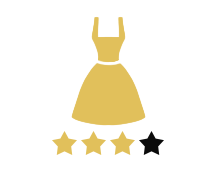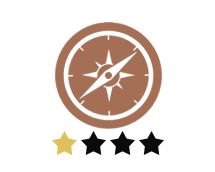Adridne wrote:
It is often easy to feel overwhelmed in the face of species loss and habitat destruction. The problem is large and complex—it's common for individuals to feel powerless. Yet, everything we do is vitally important. We may only do a little bit in the grand scheme of things, but together our seemingly small actions add up to a lot.
"Whatever you do will be insignificant, but it is very important that you do it." ~ Mahatma Gandhi
1. Protect Wildlife Habitat
Perhaps the greatest threat that faces many species is the widespread destruction of habitat. Deforestation, farming, over-grazing and development all result in irreversible changes—soil compaction, erosion, desertification, and alteration of local climatic conditions. Such land use practices vastly alter or even eliminate wildlife habitat. In areas where rare species are present, habitat destruction can quickly force a species to extinction.
By protecting habitat, entire communities of animals can be protected together and when communities are kept intact, less conservation intervention is required to ensure species survival. Parks, reserves, and other protected lands are too often the only habitats left untouched by habitat destruction.
2. Join a Conservation Organization
There is a wide range of conversation organizations working to protect endangered animals and habitats. Different organizations have different objectives—some work to protect a small plot of land or to protect whales, others focus on establishing good environmental policies in local government.
If you have a specific area of interest, you can often find an organization that is working to protect the species or habitats you're most concerned about. By joining in, you can support well-organized, ongoing efforts to protect species and habitats. And if you want to participate in conservation field work, you can often get involved in specific programs within many conservation organizations that rely to a great extent on help from volunteers.
3. Reduce the Threat of Invasive Species
The spread of non-native species has greatly impacted native populations around the world. Invasive species compete with native species for resources and habitat. They can even prey on native species directly, forcing native species towards extinction. Another way to reduce the threat of invasive species is to incorporate native plants in your garden and to welcome native animals into your yard.4. Recycle and Reduce Energy and Goods Consumption
By recycling and (reusing as much as we can, we reduce our impact on the environment. Additionally, by reducing the energy we consume, we take a little of the burden off our natural resources (and our pocketbooks). You can also reduce your carbon footprint by first calculating your current carbon footprint and then reduce the amount of carbon you consume.
5. Minimize use of Herbicides and Pesticides
Herbicides and pesticides may keep yards looking nice but they are in fact hazardous pollutants that affect wildlife at many levels. Many herbicides and pesticides take a long time to degrade and build up in the soils or throughout the food chain. Some groups of animals such as amphibians are particularly vulnerable to these chemical pollutants and suffer greatly as a result of the high levels of herbicides and pesticides in their habitat.6. Place Decals on Windows to Deter Bird Collisions
Daniel Klem Jr. of Muhlenberg College has estimated that as many as one billion birds in the United States die each year due to collisions with windows. You can help reduce the number of collisions simply by placing decals on the windows in your home and office. Other simple steps you can take to reduce the likelihood of collisions are to re-evaluate feeder placement, draw shades and curtains during brightest parts of day, install tilted window glass, and put screens on outside of windows.
7. Slow Down When Driving
Many native animals have to live in developed areas and this means they must navigate a landscape full of human hazards. One of the biggest obstacles to wildlife living in developed areas is that created by roads. Roads divide habitat and present a constant hazard to any animal attempting to cross from one side to the other. So when you're out and about, slow down and keep an eye out for wildlife.8. Voice Your Concerns and Get Involved Locally
By letting local and national governments know that you're concerned about endangered species, you're increasing the likelihood that someone will do something about it.9. Change Your Career
This may sound extreme but for some people getting involved in the protection of threatened and endangered animals is so important that a career change that enables you to work directly with species of concern may be the most rewarding way of doing so. If you're seeking more information on changing your career, you may want to check out The Working Zoologist.10. Share Your Enthusiasm for Wildlife and Nature
Encourage others to learn about nature, enjoy watching wildlife, and value protecting habitats and species with which we share this planet.



 0
0 0
0 0
0 0
0 To join the forums you need to be logged in.
To join the forums you need to be logged in.














 13
13
